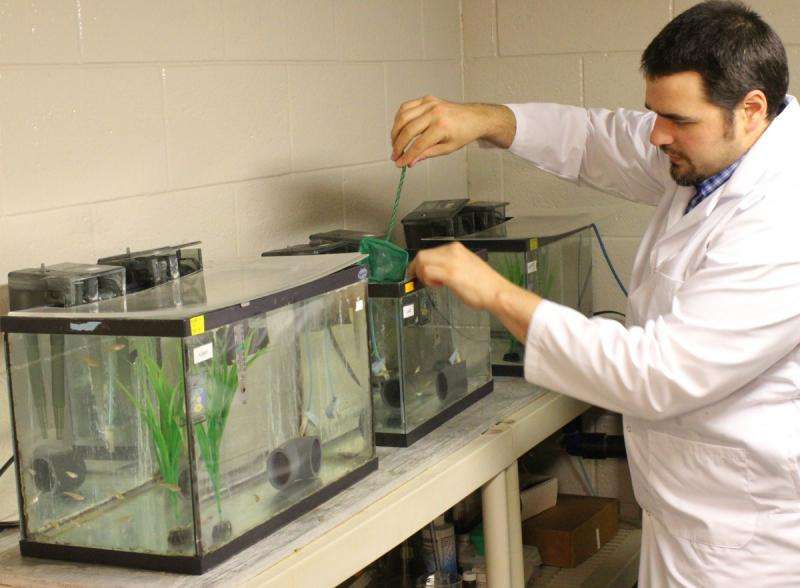Oil spills affecting fish population

A mixture of bitumen and gasoline-like solvents known as dilbit that flows through Prairie pipelines can seriously harm fish populations, according to research out of Queen's University and the Royal Military College of Canada.
At toxic concentrations, effects of dilbit on exposed fish included deformities and clear signs of genetic and physiological stress at hatch, plus abnormal or uninflated swim bladders, an internal gas-filled organ that allows fish to control their buoyancy. Exposure to dilbit reduces their rate of survival by impairing their ability to feed and to avoid predators.
"This new study provides a clearer perspective on the potential risks to Canada's aquatic resources of dilbit spills, and a technical basis for decisions on dilbit transportation within Canada," says Peter Hodson (Environment Studies, Biology). "It reduces some of the uncertainty and unknowns about the hazards of dilbit."
The research was funded by Fisheries and Oceans Canada and the next stage will determine whether fish species native to Canada will be affected by dilbit exposure. The work also includes the development of genetic markers of exposure to dilbit and toxicity that could be used to assess whether wild fish that survive a spill are still affected.
The research team includes Dr. Valérie Langlois (Environmental Studies, Royal Military College of Canada) and Dr. Barry Madison (Royal Military College of Canada).
Dr. Hodson is also a member of a Queen's research team tasked to determine whether dilbit spilled into rivers would contaminate bed sediments, specifically areas where fish such as salmon, trout, chars, whitefish and graylings spawn, to the extent that the survival of their embryos would be affected.
The research was published in ScienceDirect.
More information: "Diluted bitumen causes deformities and molecular responses indicative of oxidative stress in Japanese medaka embryos," Aquatic Toxicology, Volume 165, August 2015, Pages 222-230, ISSN 0166-445X, dx.doi.org/10.1016/j.aquatox.2015.06.006
Provided by Queen's University
















